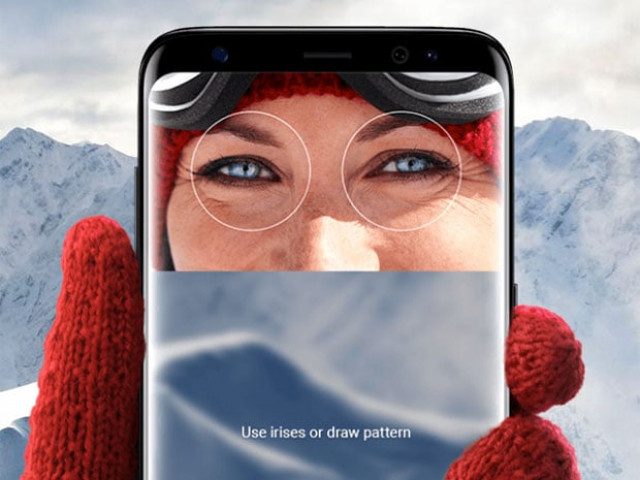Samsung Galaxy S8 iris scanner fooled by hackers
Hackers unlocked the phone using a printed photo of the owner's eye covered with a contact lens

Hackers unlocked the phone using a printed photo of the owner's eye covered with a contact lens. PHOTO: SAMSUNG
The launch of the Galaxy S8 was a key step for the world's largest smartphone maker as it sought to move on from last year's humiliating withdrawal of the fire-prone Galaxy Note 7s, which hammered the firm's once-stellar reputation.
But a video posted by the Chaos Computer Club (CCC), a German hacking group founded in 1981, shows the Galaxy S8 being unlocked using a printed photo of the owner's eye covered with a contact lens to replicate the curvature of a real eyeball.
Samsung launches Galaxy S8 and S8+ in Pakistan
"A high-resolution picture from the internet is sufficient to capture an iris," CCC spokesman Dirk Engling said, adding: "Ironically, we got the best results with laser printers made by Samsung."
A Samsung spokeswoman said it was aware of the report and was investigating.
The iris scanning technology was "developed through rigorous testing", the firm said in a statement as it sought to reassure customers.
"If there is a potential vulnerability or the advent of a new method that challenges our efforts to ensure security at any time, we will respond as quickly as possible to resolve the issue."
Galaxy S8 restarting randomly and no one knows why
Samsung's hopes of competing against archrival Apple's iPhone had been pinned on the Galaxy S8 after last year's Note 7 disaster.
The recall debacle cost Samsung billions of dollars in lost profits and hammered its global credibility, forcing it to apologise to consumers and postpone the S8 launch.
But since it was released in April it has received positive reviews and strong orders.
The CCC previously demonstrated a way to defeat Apple's TouchID fingerprint sensors -- using graphite powder, a laser etching machine and wood glue -- just weeks after the first iPhone 5s hit the shelves.
Traditional PIN protection was "a safer approach than using body features for authentication", Engling said.


















COMMENTS
Comments are moderated and generally will be posted if they are on-topic and not abusive.
For more information, please see our Comments FAQ